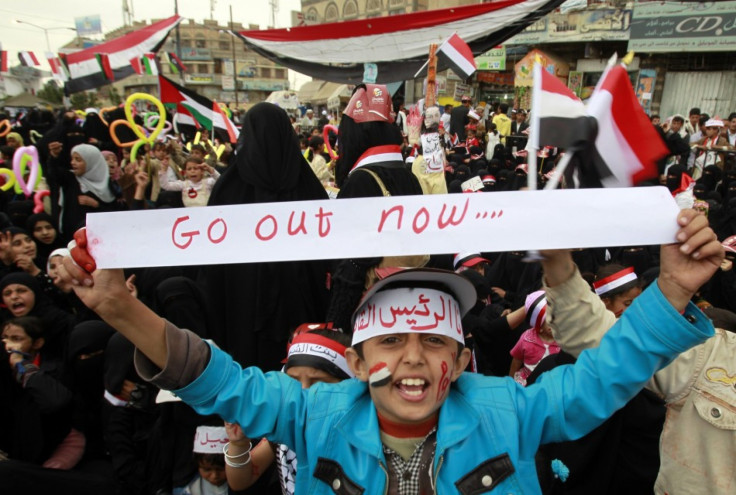Yemen’s president reportedly on brink of quitting

In the face of unceasing protests in Yemen over the past six weeks, it looks like the country’s besieged President Ali Abdullah Saleh is about to step down.
According to various media reports, an agreement is at hand to arrange for a transfer of power.
Foreign Minister Abubakr al-Qirbi, a close ally of Saleh, has confirmed the president is on the brink of quitting.
I hope it will be today, before tomorrow, Qirbi told Reuters.
President Saleh is willing to look at all possibilities, as long as there are really serious commitments by the [opposition] JMP to come and initiate a serious dialogue between them and the ruling party.
Regarding talks between Saleh and opposition parties, Qirbi said: I think things are very close if the real intention is really to reach an agreement.
But if there are parties who want to obstruct it then of course one cannot predict.
Although Saleh previously said he would resign later this year, demonstrators demanded his immediate resignation. Moreover, a spate of defections by high-ranking government officials has apparently accelerated the process.
Now, Saleh is reportedly negotiating the terms of his departure from power (one day after the capitol city of Sanaa witnessed the largest anti-government protest of the period, with tens of thousands of Yemenis marching and chanting).
Ahmed al-Sufi, a spokesman for Saleh, said that Saleh's vice president and political adviser have met with the US ambassador and tribal and military leaders who have defected to the opposition.
The rallies have come at a high price for the country’s people – last week at least 50 protesters were killed by government security forces.
Moreover, the proposed “transfer of power” faces other problems. For one thing, what will happen to some of Saleh’s relatives – including his son Ahmed, head of the fearsome Revolutionary Guard -- who hold top positions in the government?
In addition, Saleh’s opposition comprises a disparate collection of elements with little in common, including liberal students, radical Islamists, conservative tribal chiefs, among others.
Saleh’s removal would also present problems for his western allies, especially the U.S., since he has been important in rooting out Al Qaeda terrorists hiding out in Yemen.
© Copyright IBTimes 2024. All rights reserved.





















